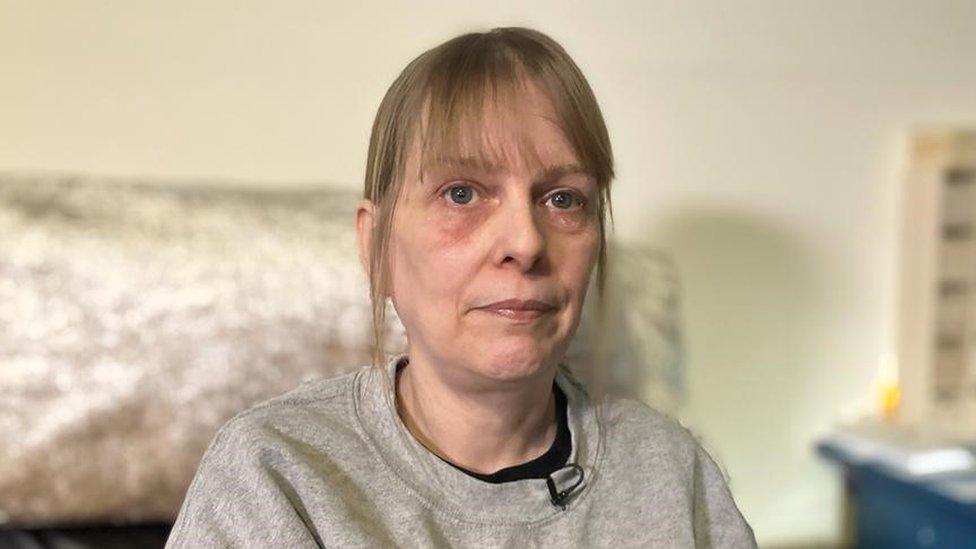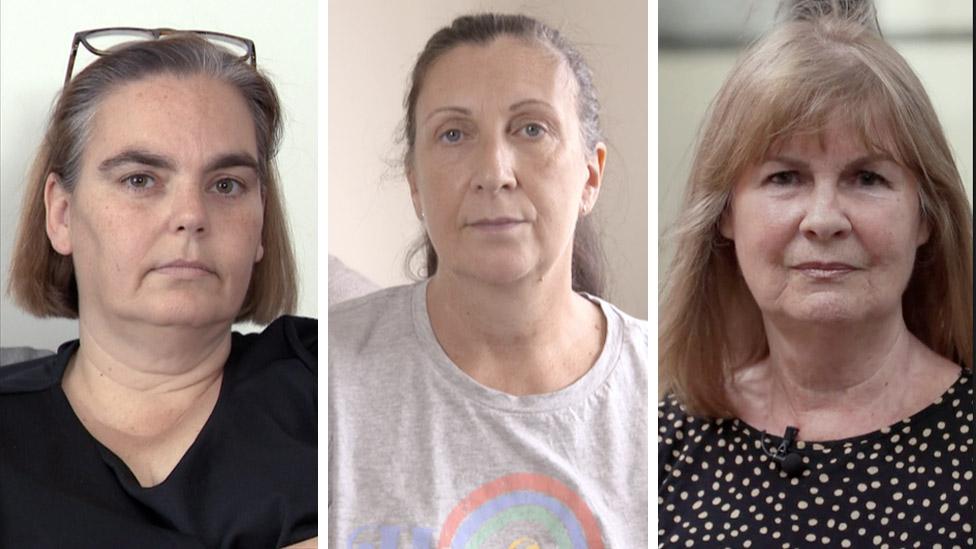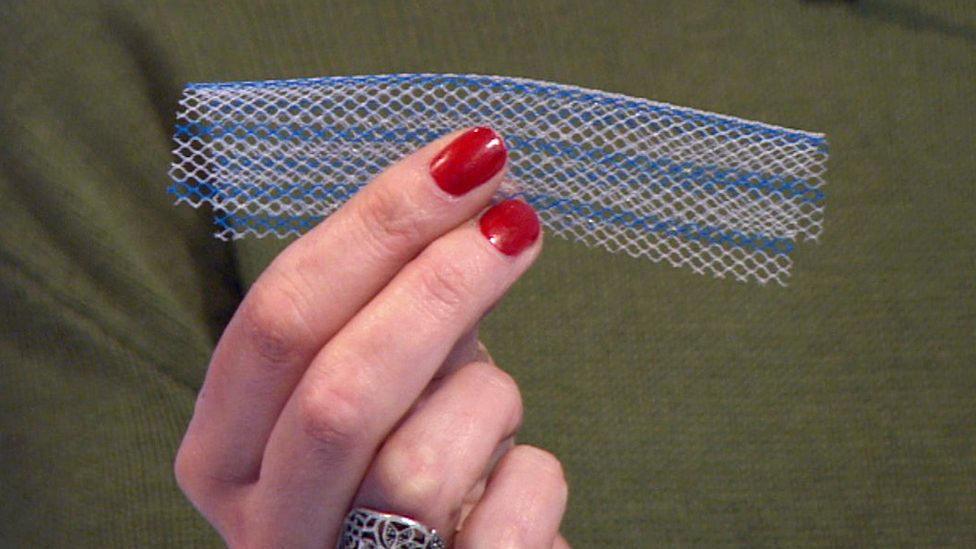Pelvic mesh compensation disappointingly low, says victim
- Published

Claire Cooper had a mesh implant after suffering stress incontinence
A woman who described the time in her life after a pelvic mesh implant as "soul destroying" said proposed government compensation was "disappointingly low".
Claire Cooper, from Uckfield, is one of around 100,000 women across the UK who had transvaginal mesh implants.
England's patient safety commissioner suggested compensation could start at around £20,000.
The government said it had listened to women affected.
Ms Cooper, 49, was originally given the mesh implant as a treatment for incontinence after childbirth.
However, after struggling with pain following the operation, Ms Cooper claimed doctors treated her as if she were "psychotic" and "a nuisance".
'Soul destroying'
She said her experience was one of being "mocked".
"It was just soul destroying," Ms Cooper told BBC Radio Sussex. "I lost my fight because I was met at every turn with resistance so I just lost the ability to advocate for myself."
Ms Cooper eventually had surgery to remove the mesh, which she said one doctor compared to "cheese cutting wire".
She is still living with chronic pain.
Henrietta Hughes, a GP whose role as patient safety commissioner was created to look into the scandal, has called on the government to act quickly to help victims.
She previously told the BBC: "These families weren't listened to by a system that really turned its back, and fobbed them off with information which led to them not only being harmed, but thousands of others being harmed."
"There are lots and lots of us that have lost income, lost houses, lost marriages," said Ms Cooper.
"What figure can you come up with that would be compensation for all of that?"
A Department of Health and Social Care spokesperson said: "Our sympathies remain with those affected by pelvic mesh and we are focused on improving how the system listens to patients and healthcare professionals, as well as introducing measures to make medicines and devices safer. "The national pause remains in place for the use of pelvic mesh to treat prolapse and the use of tape or sling to treat stress urinary incontinence, and there are nine specialist mesh centres in operation across England, ensuring that women in every region with complications of pelvic mesh gets the right support."

Follow BBC South East on Facebook, external, on X, external, and on Instagram, external. Send your story ideas to southeasttoday@bbc.co.uk, external.
Related topics
- Published2 March 2023

- Published8 July 2021

- Published10 July 2018
